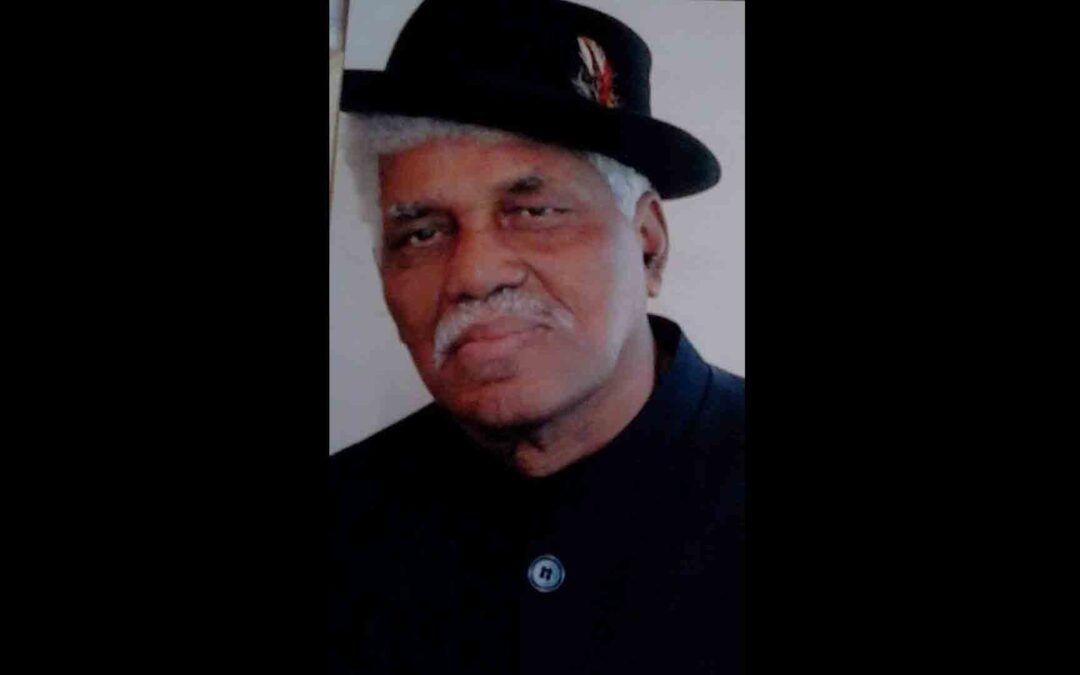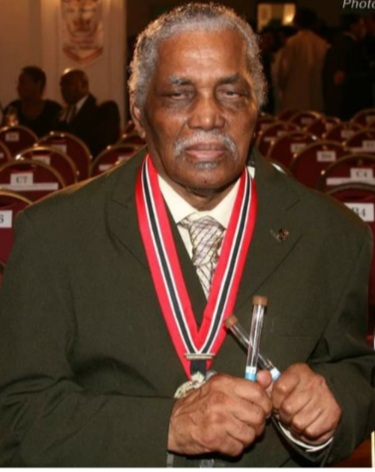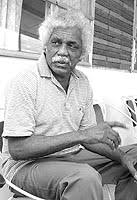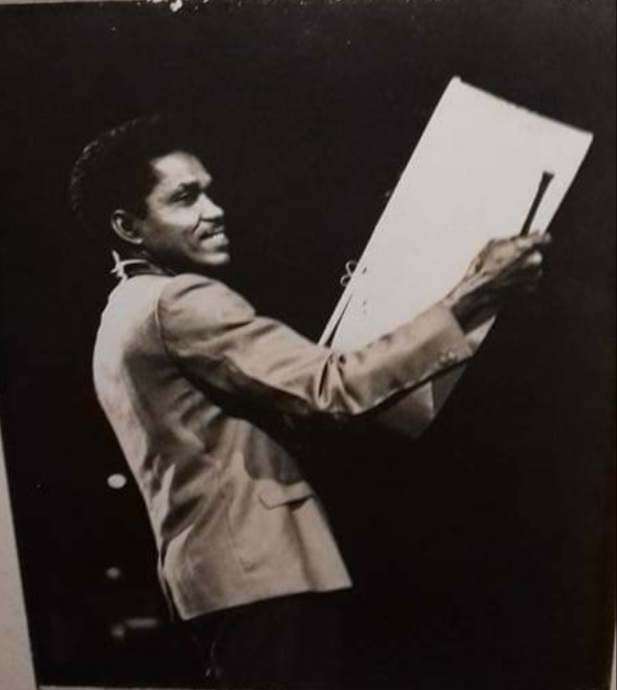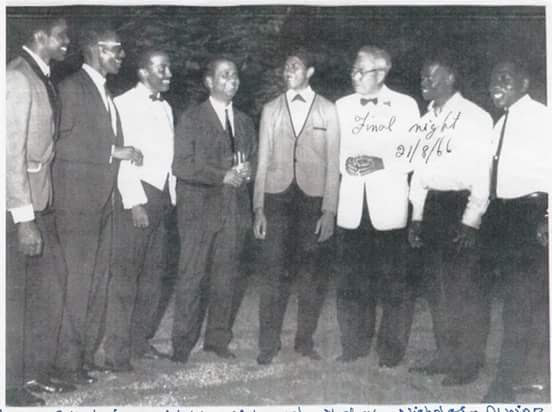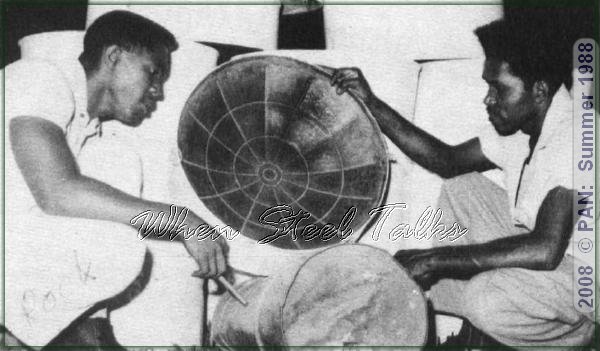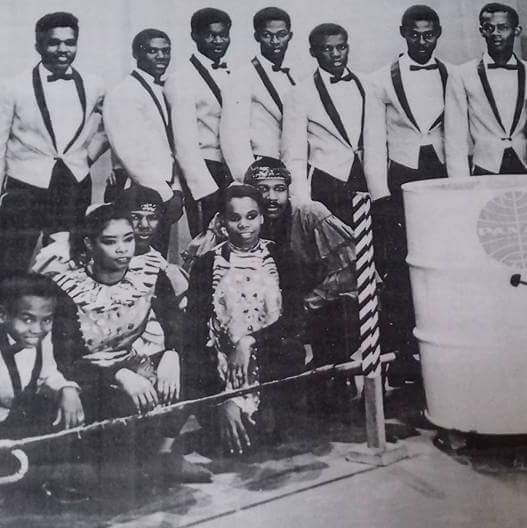One of the most unique and iconic aspects of the School of Music at Northern Illinois University, and the university as a whole, is the success and prominence of its Steelpan program. It is fitting that a man who has had both a direct and indirect influence will have his lifetime of accomplishment and impact on others recognized with an honorary doctorate from NIU.
Anthony Williams, a world-renowned innovator, performer, technician, band leader and arranger has been unanimously recommended and selected to receive an honorary doctorate in human letters from NIU.
During its embryonic stages, indigenous cultural forms of expression such as the steelpan, and its champions, were often relegated to second-class status. However, Williams and many of his contemporaries’ belief in the instrument’s potential could not be quelled—initially drawn to the instrument as a player, he subsequently evolved into one of the most celebrated innovative technicians, prominent band leaders, and arrangers.
Born in Trinidad and Tobago in 1931, Williams, along with the late Dr. Ellie Mannette, was one of the first to experiment with fashioning abandoned oil drums into steel pans, an idea that other stakeholders in the fraternity initially rejected based on the size and weight of the pan. In 1951, he was selected for his multi-faceted skill set to join the inaugural Trinidad All Steel Percussion Orchestra (TASPO), an ensemble which was comprised of some of the leading steelpan players and tuners of the day. They performed for the 1951 Festival of Britain, primarily, in what may have been the first time audiences outside of the English-speaking Caribbean were exposed to the steelpan’s versatility and profundity. The rave reviews that they received led many in Trinidad and Tobago to reexamine their views on the instrument’s true potential.
The following year, Williams was named the leader of one of the most prominent steel pan bands in the Caribbean, the North Stars. From there, he developed his international acclaim as a band leader and arranger.
By the 1970s, still committed to innovating with the steelpan, Williams began collaborating with scientists to understand the physical properties and acoustics of the pan.
Photo Gallery
Click on image to view a gallery of images of Anthony Williams (more story after the gallery)
As an innovator in the science and art of the steelpan, Williams has had a unique impact on NIU, contributing to the success of faculty, staff, and countless steelpan students.
NIU is one of the leading universities in the world for steelpan/pan studies. The steelband program was initiated by the late G. Allan O’Connor in 1973, who subsequently brought on board the late Clifford Alexis—himself a 2017 NIU honorary doctorate recipient—to build and tune instruments for the NIU Steelband, as well as arrange, compose, and, eventually, co-direct the band. The program has attracted students, celebrated performers, composers, and lecturers from many sectors of the globe, including the birthplace of the steelpan, Trinidad and Tobago.
The NIU Steelband has performed at a host of international and national venues, and even captured second place at the 2000 World Steelband Music Festival held in Trinidad—no small feat for a collegiate ensemble. NIU Steelpan graduates continue to leave their mark as educators at the University of the West Indies, University of Trinidad and Tobago and many other institutions of learning around the world. They also consistently appear at respected concert venues, and their creative works are routinely featured at events such as the Super Bowl of steelband competitions, Panorama.
Anthony Williams’ impact on the steelpan art form cannot be overstated. Many of his groundbreaking innovations were realized during a period which brought about significant challenges to the steelpan’s forefathers; indeed, the steelpan universe owes a great debt of gratitude to visionaries like Williams.
For Liam Teague, Presidential Research, Artistry and Scholarship Professor, Professor of Music, Head of Steelpan Studies and Director of the NIU Steelband, himself a native of Trinidad and Tobago, the opportunity to honor Williams means even more.
“I’m in awe of these pioneers, like Dr. Williams,” Teague said. “Because the period that they grew up in, especially when Trinidad was still a colony of Britain, many of them didn’t get support by the public at large. People looked at the instrument more as a novelty and those in the steelpan fraternity were subjected to constant disrespect. For most of us, if we’re doing something that we’re passionate about and day in, day out, people are saying that you’re wasting your time and just get a real job, I think most of us would go elsewhere. I’m just in awe that these pioneers could maintain that focus and have that vision. People like myself are really the beneficiaries of so much of their hard work, sacrifice, and fortitude.”
The steelpan is now recognized as the national instrument of Trinidad and Tobago, and it continues to captivate the hearts, souls and imaginations of people globally. Without the unwavering perseverance and fortitude of Anthony Williams and many of his contemporaries, the steelpan’s legitimacy and profundity, in such an astronomically short period, would never have come to fruition.
One of Williams’ innovations was what was then broadly known as the Spider Web pan.
Teague explains the innovation. “Prior to Anthony Williams, the note placements on most tenor pans (actually in the soprano range) were random probably because the majority of the steelpan pioneers didn’t have formal training in music, and much of what they were doing was by intuition. Williams created a design which was informed by the circle of fifths that brought about a greater sense of uniformity; at that time, because the notes were all connected to each other, they looked like a spider’s web hence its nickname. Williams’ 4ths and 5ths tenor pan design remains the most popularly played in the world- and that’s just one of his key innovations.”
In 1968, Williams and North Stars performed with Trinidad-born Winnifred Atwell, an internationally acclaimed piano virtuoso, in the Bahamas and New York, and produced the album Ivory & Steel, the first ever recording of its kind. These kinds of collaborations attracted of large group of new admirers and served as sociological and musical barrier breakers. Additionally, North Stars engaged in several tours, including an appearance on The Ed Sullivan Show, which allowed them to showcase their eclectic programming- such as Voices of Spring by the classical composer Johann Strauss III, and earn the praise of notable musicians, including the conductor Leopold Stokowski.
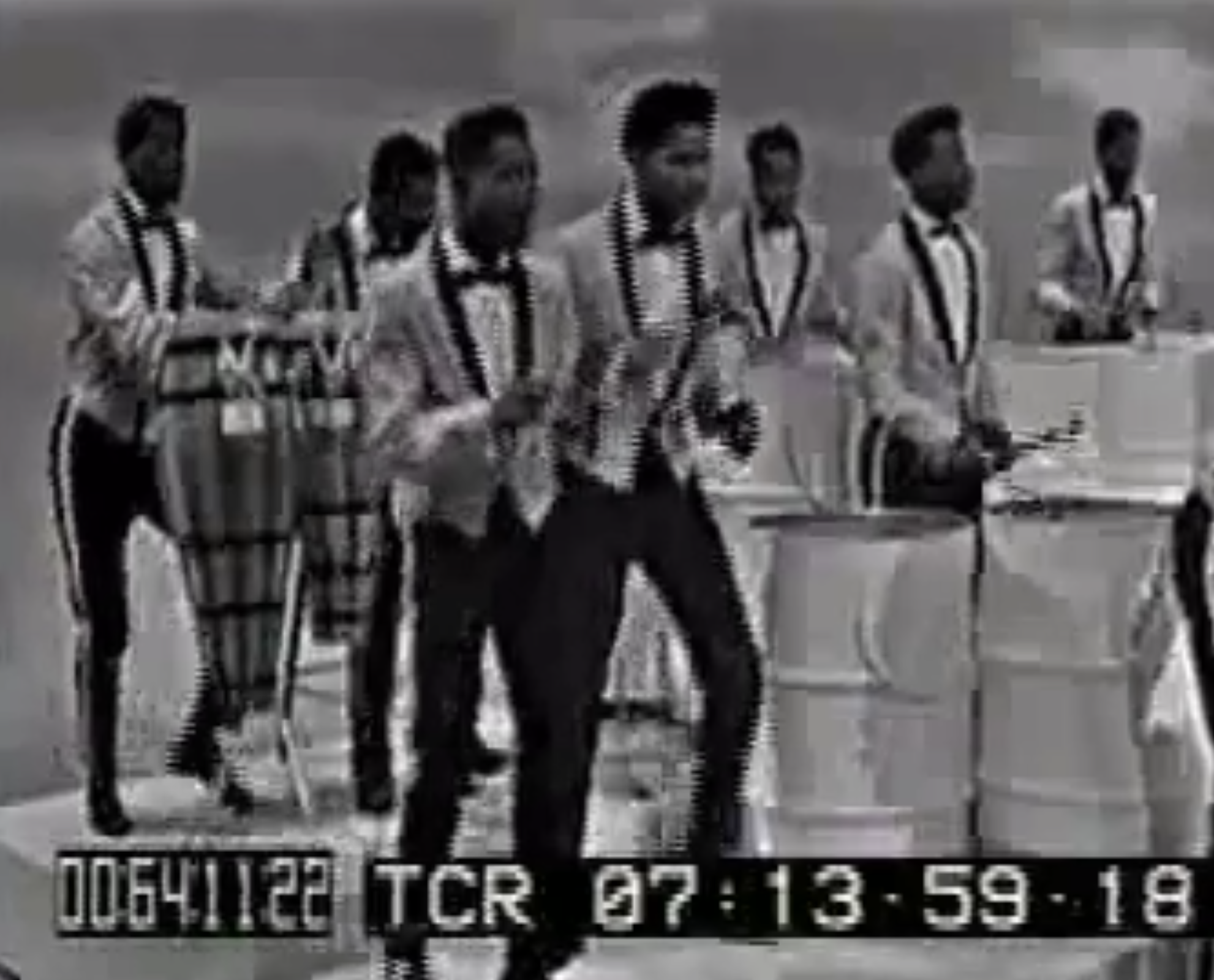
Watch: Footage of Anthony Williams’ North Stars appearing on The Ed Sullivan Show in 1964
The pioneering work of Williams directly resonates in the research and experimentation of Dr. Thomas Rossing, former NIU physics professor. Rossing’s curiosity about the acoustics of the steelpan led to frequent collaborations with O’Connor and Alexis, and many of his findings were significantly featured in his book-length publication The Science of Percussion Instruments, as well as in scholarly journals and presentations at national conferences.
“A lot of what we do here at NIU, is directly influenced by the barrier-breaking philosophy of people like Anthony Williams,” Teague said. “Their vision, and what they brought to the table.”

